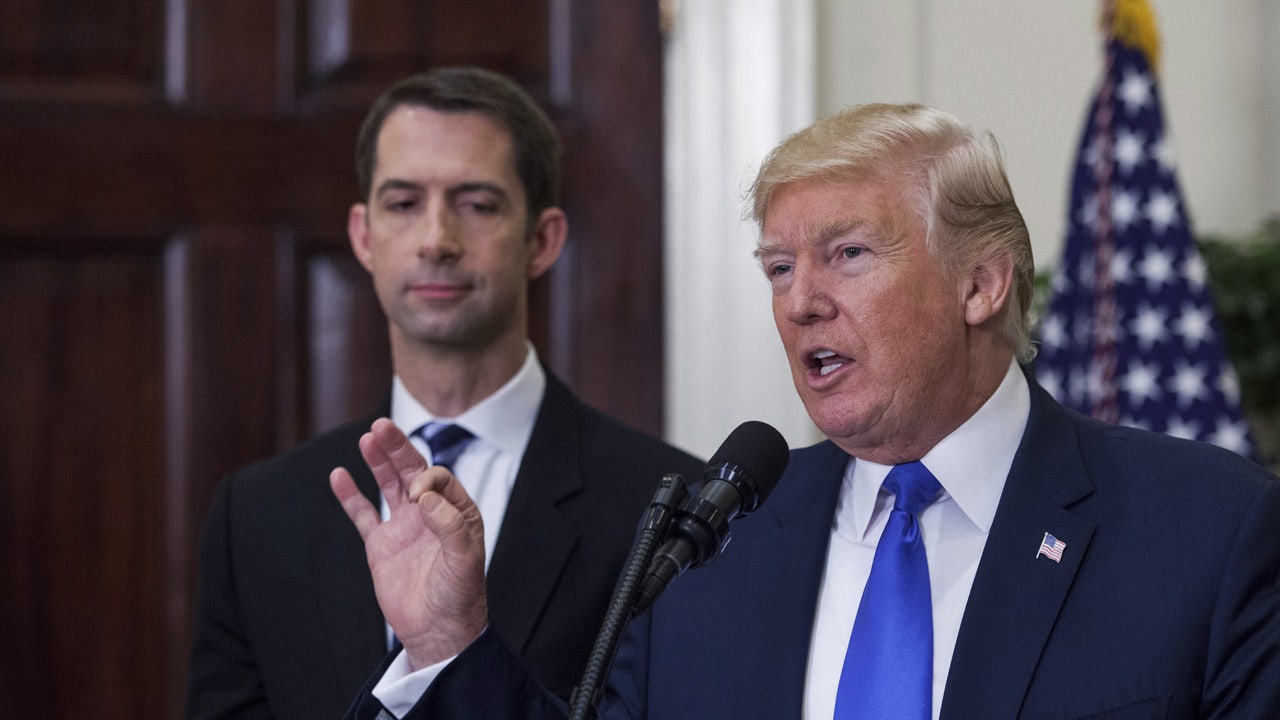New Hampshire
'No Safe Experience': New Hampshire Officials Stress Fentanyl Awareness Tuesday

CONCORD, NH — Fentanyl continues to be mixed into many illicit drugs with devastating results.
Last year, three individuals were found dead in a Littleton home after reportedly ingesting cocaine laced with fentanyl. Cases like this, where individuals experiment with drugs and result in catastrophic consequences, are why there is “No Safe Experience” when it comes to taking illicit drugs because they could contain fentanyl.
With National and New Hampshire Fentanyl Awareness Day on May 7, officials in New Hampshire are calling on all individuals to be aware of the life-threatening dangers associated with fentanyl, a substance that is 50 to 100 times stronger than heroin and morphine. The statewide public awareness campaign “No Safe Experience” focuses on educating youth, young adults and families of the prevalence of fentanyl in illicit drugs and counterfeit pills and a very small dose can lead to death due to its high potency.
According to the New Hampshire Department of Safety, there were 430 overdose deaths in the Granite State in 2023. Of these, nearly 85 percent were from substances where fentanyl was present. In the same year, there were 4,080 suspected overdose incidents reported, many of which required Narcan use by first responders. Death tolls may have been significantly higher if these measures were not taken.
“Fentanyl is an unforgiving, deadly, invisible killer that can take the life of anyone who decides to use an illicit substance,” Colonel Mark Hall, the director of the New Hampshire State Police, said. “It is important to create a high level of awareness that there is No Safe Experience when it comes to illicit drugs and fake pills, as our forensic lab commonly finds fentanyl in these types of substances.”
Gov. Chris Sununu issued a proclamation declaring May 7, 2024, Fentanyl Awareness Day in New Hampshire. The proclamation stated that “illicit fentanyl use is widespread and deadly and poses a significant public health risk. The State of New Hampshire joins all those who have been affected by fentanyl misuse in spreading awareness of the harm that fentanyl can cause; resources are available for loved ones dealing with substance misuse; and reminds all Granite Slaters there is No Safe Experience when consuming any drugs that have not been prescribed by a medical provider and taken by the person they were prescribed to as directed by a healthcare professional.”
Fentanyl is a powerful synthetic opioid typically used to treat patients with chronic severe pain or severe pain following surgery. A dose the size of a few grains of salt can be lethal, and it is often found to be mixed with other illicit substances, including cocaine, methamphetamines, and heroin. It is now regularly seen in fake pills branded as Oxycodone and Percocet, among others, and is undetectable without testing.
According to an April 2024 report by Statista, there has been a dramatic surge in drug overdose deaths in the U.S. over the past 10 years, which is primarily driven by the rise of synthetic opioids such as fentanyl. According to preliminary data published by the Centers for Disease Control and Prevention, drug overdose deaths exceeded 110,000 in 2022, with synthetic opioids involved in 76,000 of those deaths.
The No Safe Experience campaign will run through the fall and is focused on individuals who may be inclined to try substances without fully understanding what they are, where they came from and what might actually be in them. The campaign includes videos, public service announcements, social media resources, billboards, and an informational website. Posters, racks cards and decals were distributed to 217 public middle and high schools and educational toolkits and resources are available to schools across the state.
For more information, facts, and resources, visit NoSafeExperience.org.
Submitted by the New Hampshire Department of Public Safety.

New Hampshire
A Soggy Post-Memorial Day Weather Week In New Hampshire: Get Out

CONCORD, NH — After a relatively decent holiday weekend — yeah, it ended wet, so expect more rain during the next few days.
Forecasters are calling for cloudy skies on Tuesday, but then there will be some sun with highs in the lower 80s and wind gusts that may get up to 20 mph. Overnight lows will drop down into the mid-50s.
There is a 50-50 chance of rain on Wednesday afternoon, with highs in the mid-70s. Overnight lows will be in the lower 50s.
Similar weather is expected on Thursday.
By Friday, the sun returns with highs in the low 70s and the weekend looks pretty good, too.
The latest weather conditions can be found on the front page of every Patch.com site in the United States, including the 14 New Hampshire Patch news and community websites covering Amherst, Bedford, Concord, Exeter, Hampton, Londonderry, Manchester, Merrimack, Milford, Nashua, North Hampton, Portsmouth, Salem, Windham, and Across NH. Local weather reports for New Hampshire are posted on Sundays and Thursdays. Alerts are published when needed.
Get Out, New Hampshire!
Here is a roundup of fun things to do around the Granite State this week
New Hampshire
Hundreds gather in Concord to talk about a diversifying New Hampshire | Manchester Ink Link

CONCORD, NH — Dwight Davis went straight to the point when he spoke at The Barn at Bull Meadow on the afternoon of Tuesday, April 30.
“The New Hampshire Center for Justice and Equity is making it possible to have a seat at the table of decision-making,” said Davis, chair of the NHCJE’s board, to the more than 150 activists, business leaders, educators, labor organizers, and politicians in attendance. “Because if you don’t have a seat at the table, you might be on the menu.”
Davis’ remarks opened the Second Annual Meeting for the NHCJE. Launched in September 2022, NHCJE seeks to elevate and empower people of color in New Hampshire by fostering connections, changing systems, and meeting community needs to make a better Granite State where all belong. In his opening remarks, NHCJE founding President and CEO Anthony Poore made sure to thank all those who contributed toward advancing the center and its goals.
“We have a lot to be thankful for,” he said. “Let’s be clear: This work is hard. We recognize that making progress on these issues will take work.”
He went on to say the work will continue to become more challenging but of crucial importance as New Hampshire’s population continues to diversify. As of the 2020 Census, 13% of the state’s population identified as people of color, the first time this proportion hit double digits in NH in Census history.
Though changing, the Granite State’s long history and narrative of a largely racially homogeneous population means that there will be challenges moving forward in the eyes of many participants.

“A lot of the culture in New Hampshire is the lack of diversity,” said Jason Green, Deputy Director of the New Hampshire Chapter of the American Civil Liberties Union (ACLU), adding that Granite Staters must learn to live with a more diverse population.
In counting off NHCJE’s successes, Poore highlighted NHCJE’s Implicit Bias and Tactical Mindset Training for law enforcement. The program — which has already trained 200 public safety officers in multiple jurisdictions across the state — looks to mitigate the harm caused by racially biased policing. Poore said NHCJE hopes to expand the program and work with more agencies soon.
He added to the list of wins the increasing number of visitors to the NHCJE website, saying that in 2023, there were 15,000 unique visitors from 49 states and about 42,000 page views.
Bringing NHCJE’s Policy Platform to Life
The opening speakers did not allow themselves to go on for too long. They swiftly moved the event toward collaboration and advocacy.
“Who likes to be talked at for three hours?” said Jamal Downey, the event’s MC and NHCJE board member. “Let’s take a minute to look at how [activism] is supposed to work in an ideal setting.”
In that spirit, attendees were split into six groups focused on each of NHCJE’s Sectors of Effort — Law Enforcement and Criminal Justice, Government, Education, Health, Economic Development, and Civic Engagement. The groups were encouraged to discuss NHCJE’s Policy Platform, exploring the strengths, weaknesses, and blind spots of each pillar.
The Law Enforcement & Criminal Justice table had a particularly lively conversation focused on the availability of demographic incarceration data, re-entry after leaving prison, and combatting stigma.

“What’s missing [from the policy platform] is recognition of an omnipresent stigma,” said Anna Adachi-Mejia, a coach, founder of Adachi Labs, LLC, and activist for prisoner reintegration. “Stigma applies to everything.”
Jason Green of the New Hampshire ACLU added that stigma directed at returning prisoners from the general public is not the only type of stigma that needs to be addressed. “Stigma is not just external,” he said. “It’s about feeling worthy and about dignity.”
The group agreed with the NHCJE Policy Platform in its call for greater detail from authorities in reporting the demographics of their incarcerated populations in the hope it may reveal the information needed to help create programs for issues like reintegration into society.
“Thinking about data is nuanced,” said Adachi-Mejia. “But it helps to understand which pathways are associated with different experiences.”
In the ensuing discussion between all groups, it became clear that all present needed to look at the big picture because all the issues NHCJE hopes to confront are connected.
“We can’t afford to not take a systems approach to our problems here,” said Woullard Lett, Education Chair of the Manchester Chapter of the NAACP.
Taking Stock
Afterward, the groups reconvened for panel discussions about policy activism and government.
The first panel focused on efforts to make permanent the Medicaid Expansion under the Affordable Care Act and combating the 2021 Divisive Concepts Law.
“We defended some things that were very good,” said Josephine ‘Jo’ Porter, panel moderator and Chief Strategy Officer at NHCJE. “And we went after some things that were very bad.”
Brian Hawkins, Director of Government Relations for the National Education Association’s NH chapter, spoke about the fight against HB544 — the Divisive Concepts Law. The law, now in effect in the Granite State was passed despite overwhelming public testimony in opposition during the 2021 legislative session.
“As much as we think of ourselves as a homogeneous state, we are diversifying,” Hawkins said. He added the law’s vagueness effectively stopped many classroom conversations about issues of identity.
“That is the point,” Hawkins said. “The point is to write something so vague that it would chill discussion in the classroom.”
Hawkins added that, at first, they thought there was no chance the bill could pass, but events quickly dispelled that notion.

“So, what can we do?” asked Lisa Vásquez, a Behavioral Health Strategist at the City of Nashua’s Division of Public Health, in response to Hawkins’s presentation. “What else could have been done to prevent that from becoming a law?”
“By taking even the things that are really out there seriously,” Hawkins responded. “You have to take it all seriously now.”
Jake Berry, the Vice President of Policy at New Futures, Inc., a public health advocacy non-profit, followed with a talk about the successful push for continuing Medicaid Expansion.
Initially passed as part of the Affordable Care Act in 2010, Medicaid Expansion means that those with incomes 138% or more below the Federal Poverty Line can access the program for low-income Americans.
Berry said that, though it faced considerable opposition in the state, the secret to their success was building a coalition of advocates for children, the elderly, veterans, the impoverished, businesses, and others.
“This is a multi-year process,” Berry said. “We have to keep our heads up and keep going forward.”
Effective Lobbying
The day’s second panel featured Jim Monahan, Managing Partner for government relations firm The Dupont Group; Abigail Rogers, Legislative Liaison for the Division of Public Health at the NH Department of Health and Human Services; and NH House of Representatives Minority Leader Rep. Matthew Wilhelm, D-Manchester.
Moderator Ben Frost, the Deputy Executive Director at New Hampshire Housing, opened the panel with a question about handling diverse viewpoints in the General Court.
“I feel like I learn every day more and more how to do that,” Wilhelm said. Wilhelm continued that one of the biggest difficulties in getting progressive change through the General Court was the constitutionally mandated pay rate for legislators of $100 a year.

Wilhelm said the pay rate means the legislature tends to skew towards older and wealthier individuals. With the size of the legislature (over 400 legislators) and frequent turn-over of many legislators “because of that, change moves a little slow”.
Frost later asked when it would be best to contact a department head directly rather than a legislator. Rogers said legislative agency leaders can help develop strategies to tackle New Hampshire’s social issues.
“We’re subject matter experts,” said Rogers, adding that contacts in the General Court were necessary too, since many decisions come down to the availability of funds.
Frost then asked Monahan — a lobbyist — for his thoughts. He recommended that those gathered take advantage of election season and invite legislative candidates to visit their respective organizations to give them an idea of what the group is about. In this way, he said, they could build relationships for change.
Building on that concept, Wilhelm emphasized the role of clarity in effective advocacy.
“We need to be clear about our values,” he said. “About where we can compromise and where the line is.”
Vásquez, from the audience, noted the session passed on some important lessons about NHCJE’s chief mission, elevating marginalized voices.
“I think it’s important to highlight [marginalized] voices because of the lack of diversity at our state house,” she said. “We need to make it clear that lifting people up doesn’t mean pushing someone else down.”
That was exactly the type of takeaway Poore hoped for.
“We recognize progress on our public policy priorities will require a sustained and consistent focus as well as collaboration and cooperation across a myriad of sectors, geographies, and interests,” he said. “NHCJE stands prepared to lead when necessary and offer support when that is the best approach.
We look forward to sharing the results of our collective efforts soon.”
New Hampshire
Experts eye tax changes ahead of Trump-era cuts’ sunset • New Hampshire Bulletin

WASHINGTON – The race to harness the tax code is in full swing as economists and advocates across the political spectrum view the expiring Trump-era tax law as an opportunity to advance their economic priorities.
Democratic Rep. Suzan DelBene of Washington said Wednesday that reworking the tax code will be “a reflection of what your values are.”
DelBene, who sits on the U.S. House Committee on Ways and Means Subcommittee on Tax Policy, said her priorities include modernizing the tax code, raising revenue via carbon fees on imported goods, and making permanent an expanded child tax credit akin to the temporary changes in place during the pandemic.
“The top line is starting from what our values and goals are, and then looking at what the policies are that help us get there,” DelBene said at a Politico-sponsored discussion on proposed tax law changes.
The early morning event at Washington’s Union Station brought together tax experts and advocates from Georgetown University Law Center, the Urban Institute, the Heritage Foundation and Groundwork Collaborative.
Tax overhaul
The massive tax overhaul ushered in under the Trump administration permanently cut the corporate tax rate to 21 percent from 35 percent. The 2017 law, championed by Republicans as the Tax Cuts and Jobs Act, also put in place several temporary measures for corporations and small businesses. Some are phasing out or already expired, including immediate deductions for certain investments.
Temporary changes for households included marginal tax rate cuts across the board, a doubling of the child tax credit, and a near doubling of the standard deduction – all of which are set to expire Dec. 31, 2025.
A bipartisan bill to temporarily extend the expiring business incentives and expand the child tax credit beyond 2025 sailed through the U.S. House in late January, but has been stalled by U.S. Senate Republicans who oppose some of the child tax credit expansion proposals.
A May 2024 nonpartisan Congressional Budget Office report estimated extending the tax cuts would cost roughly $4.6 trillion over 10 years. The bulk of the cost would stem from keeping in place individual tax cuts, according to an analysis of the report by the Bipartisan Policy Center.
Critics of the 2017 law point to a recent March analysis from academics and members of the Joint Committee on Taxation and the Federal Reserve that shows that the law’s benefits flowed to the highest earners.
DelBene said revisiting the corporate tax rate, even on the Republican side, is “on the table” and lawmakers will be talking about “where the TCJA wasn’t about investing and making sure that we were being fiscally responsible.”
‘Incredibly bullish’
Lindsay Owens, executive director of the Groundwork Collaborative, said she’s “incredibly bullish” on elected officials making “fundamental changes” to the tax code next year.
The progressive think tank sent a letter last week to House and Senate leadership and top tax writers urging them “to use the expiration of these provisions as an opportunity to address long-standing problems with our tax code, not just to tinker around the edges.”
The letter was signed by 100 organizations from across the U.S., ranging from the AFL-CIO and the United Auto Workers to the National Women’s Law Center and United Church of Christ.
Stephen Moore, who helped write the Trump-era tax law and is now the conservative Heritage Foundation’s senior visiting fellow in economics, said the 2017 law was a “huge success” and that “we’re gonna definitely make those tax cuts permanent.”
Moore is an economic adviser for former President Donald Trump’s reelection effort, but said he was not speaking on behalf of the presidential campaign.
He said he does not agree with Trump on everything, including a promise to enact 10 percent tariffs on imported goods, reaching as high as 60 percent on Chinese imports.
“A tariff is just a consumption tax,” he said. “And so you know, I think that it is not a great policy, in my opinion. But if you’re gonna have a tariff, I would rather have a tariff that is uniform than trying to have, like, a protectionist tariff to, you know, protect this industry or that industry.”
When pressed on data that shows funding the Internal Revenue Service increases revenue, Moore said that President Joe Biden’s increase in funding for the agency is “diabolical.”
-

 Movie Reviews1 week ago
Movie Reviews1 week ago‘The Substance’ Review: An Excellent Demi Moore Helps Sustain Coralie Fargeat’s Stylish but Redundant Body Horror
-

 Politics1 week ago
Politics1 week agoTrump predicts 'jacked up' Biden at upcoming debates, blasts Bidenomics in battleground speech
-

 World1 week ago
World1 week agoIndia’s biggest election prize: Can the Gandhi family survive Modi?
-

 Finance1 week ago
Finance1 week agoSan Bernardino finance director claims she was fired after raising concerns about costly project
-

 News1 week ago
News1 week agoVideo: A Student Protester Facing Disciplinary Action Has ‘No Regrets’
-

 Movie Reviews1 week ago
Movie Reviews1 week ago‘Blue Sun Palace’ Review: An Intimate, Affecting and Dogma-Free Portrait of Chinese Immigrants in Working-Class New York
-

 Movie Reviews1 week ago
Movie Reviews1 week ago‘Rumours’ Review: Cate Blanchett and Alicia Vikander Play Clueless World Leaders in Guy Maddin’s Very Funny, Truly Silly Dark Comedy
-

 World1 week ago
World1 week agoPanic in Bishkek: Why were Pakistani students attacked in Kyrgyzstan?















